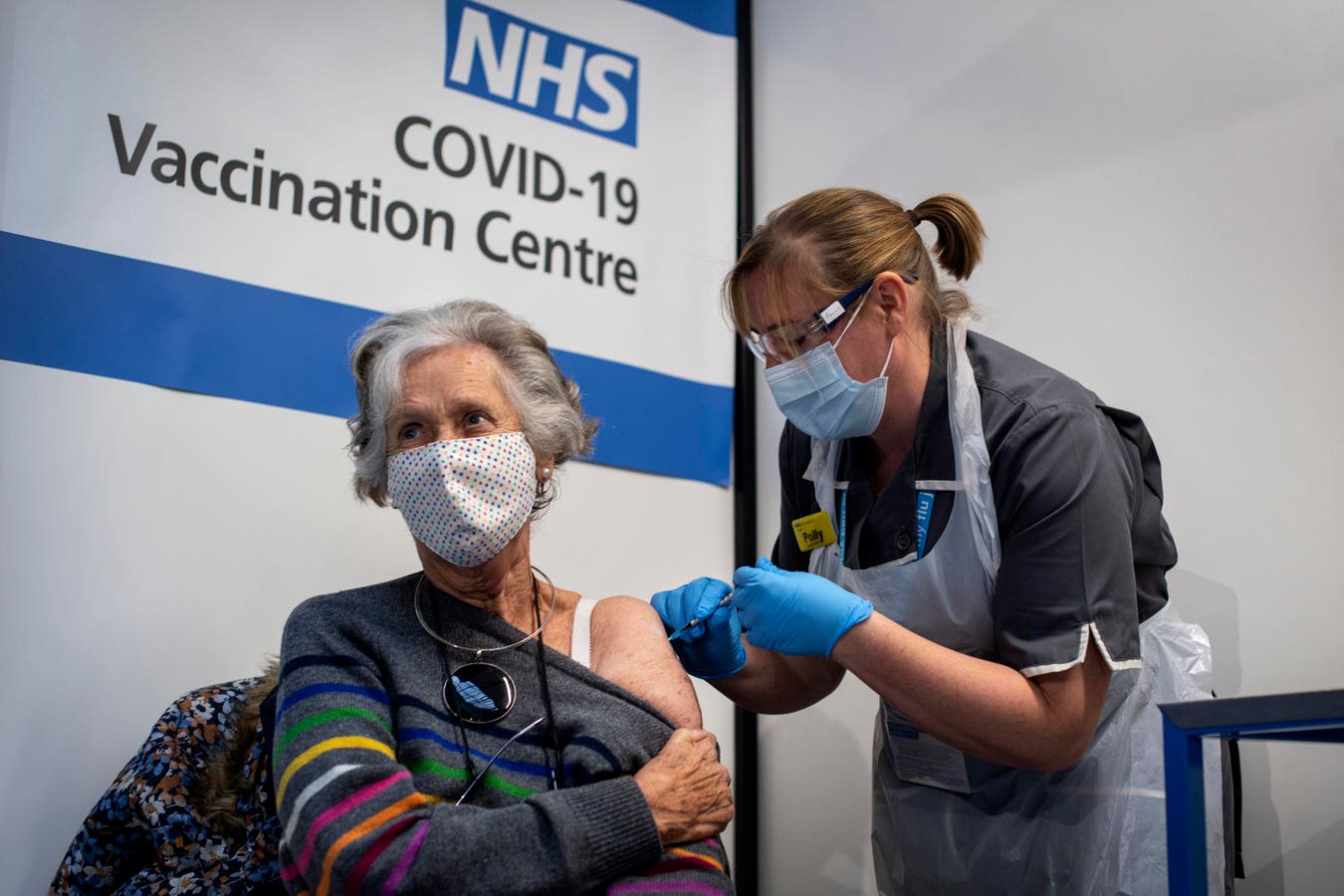Well, the anti-vax community is not going to like this one.
A growing body of evidence, buttressed by a new report just out last month, shows that people who are vaccinated have a significantly lower risk of Alzheimer’s disease.
Yes, that’s right: in addition to the obvious benefit of protecting you from infections, multiple different vaccines have now been shown, in two large studies, to be associated with fewer cases of Alzheimer’s.
How big is the effect? Well, the earlier study, published about a year ago, looked at the flu vaccine. Scientists from the University of Texas Health Science Center, led by neurologist Paul Schulz, collected data on more than 1.8 million older patients from around the U.S., of whom half had received the flu vaccine and half had not. Their average age was 74 years, and the scientists examined health records for 4 subsequent years to see how many developed signs of Alzheimer’s in that time.
In the vaccinated group, nearly 48,000 patients developed Alzheimer’s during the 4 year follow-up period, about 5.1% of all patients. That might sound like a lot, but in the unvaccinated patients, nearly 80,000 developed Alzheimer’s. To put it another way, patients who got the flu vaccine had a 40% lower risk of Alzheimer’s, 5.1% versus 8.5%..
It appears this benefit isn’t specific to the flu vaccine, though. In the newer study published this September, the same group from the University of Texas looked at 3 more vaccines: the Tdap vaccine (tetanus, diphtheria, and pertussis), the shingles vaccine, and the pneumococcus vaccine. They were able to collect records on 1.65 million people, among whom more than 500,000 had received one or more of the vaccines. All of the patients were over 65 years old.
Remarkably, all 3 of the vaccines showed similar and quite significant benefits against Alzheimer’s disease. In an 8-year follow-up period, the risk of Alzheimer’s was 30% lower (7.2% versus 10.2%) in patients who had the Tdap vaccine versus those who hadn’t. For the shingles vaccine, the reduction in risk was 25%, 8.1% versus 10.7%. And for the pneumococcal vaccine, the risk was 27% lower, 7.9% versus 10.9%.
(Note that this study looked at the older shingles vaccine. The newer one, Shingrix, has only been widely available since 2017. The scientists hypothesize that the newer vaccine, because it’s more effective against shingles, may provide even greater protection against Alzheimer’s.)
So how might this work? Is Alzheimer’s caused by an infection, and the vaccines prevent Alzheimer’s by preventing the infection? Well, the short answer is no, probably not. Although we don’t know the cause of Alzheimer’s, we don’t have any strong evidence that it’s the direct result of an infection.
Furthermore, with data showing that at least 4 different vaccines offer similar levels of protection against Alzheimer’s, the evidence indicates that the effect cannot be specific to the flu vaccine, or the Tdap vaccine, or with any of the other vaccines or their ingredients.
The U. Texas group that published the study speculated that vaccines might work to protect against Alzheimer’s by “long-term reprogramming of innate immune cells,” also called “trained immunity.” This hypothesis is far too complex to try to explain here–and it involves immunology, which I don’t really understand myself and which is “absurdly intricate” as science writer Ed Jong put it. So let’s just say that this is an intriguing idea that needs more research.
And for anyone who thinks that getting an infection and recovering (instead of getting vaccinated) might offer the same benefit, that doesn’t seem to work: another study looked at precisely this question, and found no connection between the number of influenza infections and the risk of Alzheimer’s. So the vaccine seems to confer a benefit that the disease itself does not. (I mention this because a popular–but wrong–claim of anti-vaxxers is that you get better immunity from infection by catching the disease and then recovering. Not a good idea.)
Also, I have to add that these studies report correlation, not causation. So even though the effects are large and significant, we don’t know for certain that vaccines do something to directly prevent Alzheimer’s. Maybe people who get vaccinated also have other behaviors that help them avoid Alzheimer’s–although the study design tried to minimize this possibility.
Vaccines have enormous, extensively documented benefits: they prevent suffering and disease, and they’ve saved countless millions of lives. And now it appears that they offer something else: a lower risk of Alzheimer’s. So if you haven’t received your boosters, now you have one more reason to get them.
Read the full article here





